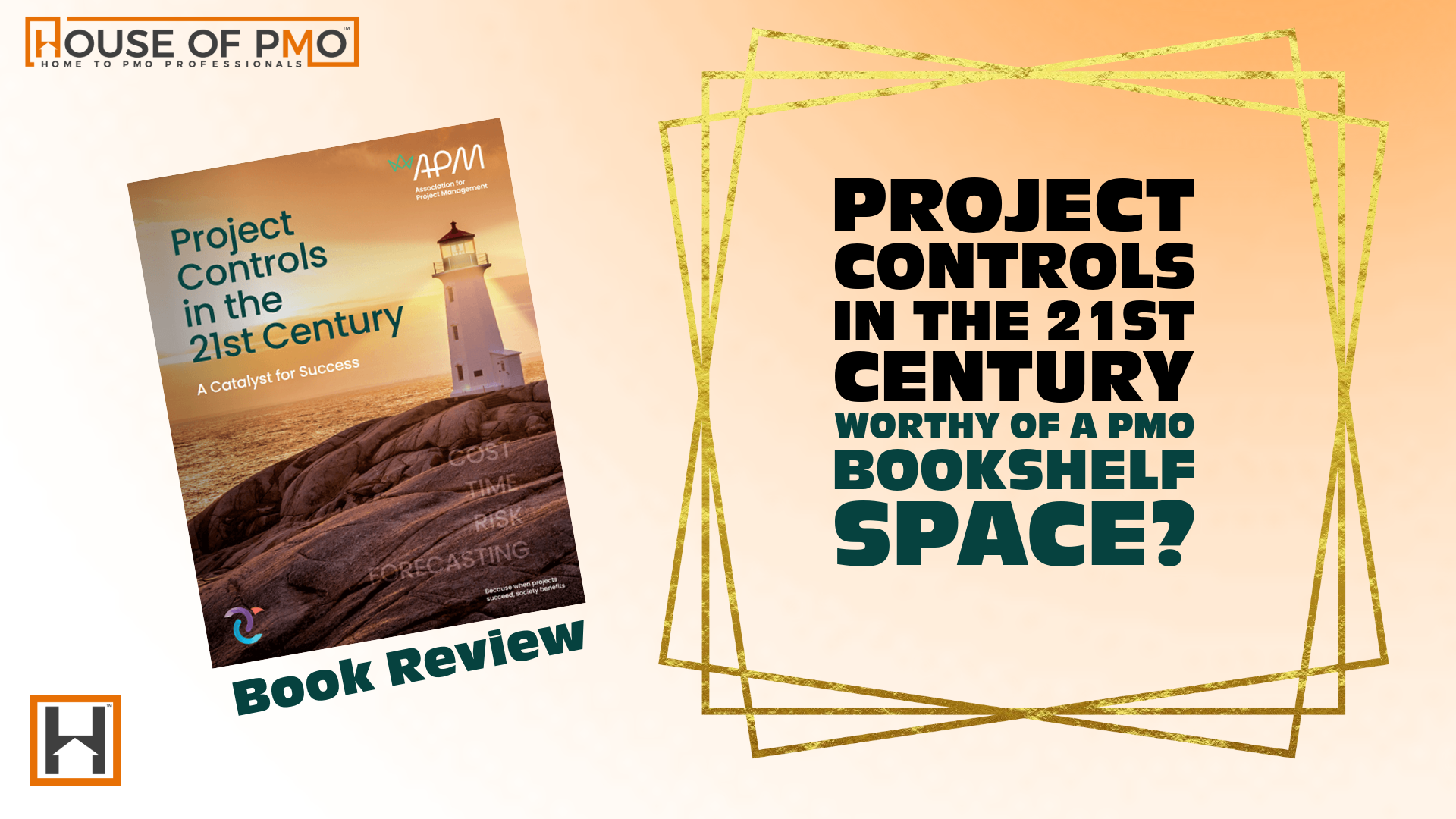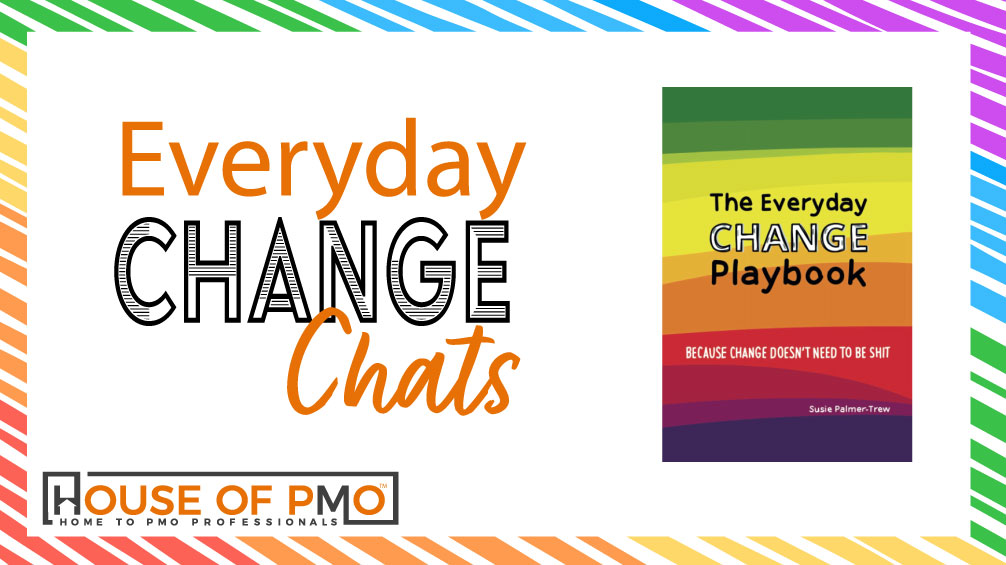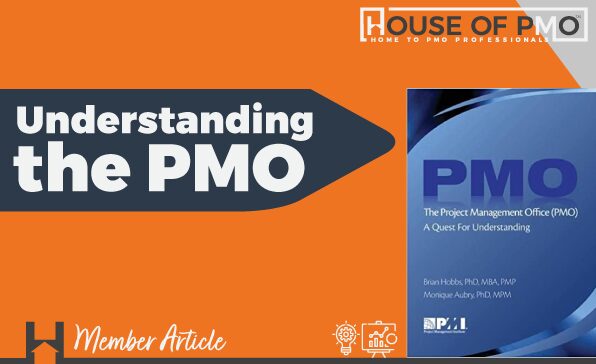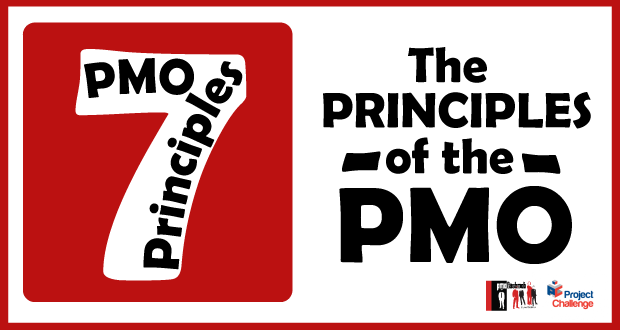- Date: May 6, 2025
- By: askanexpert
- Categories: PMO Books
A new book from the Association for Project Management entitled “Project Controls in the 21st Century” (PC21C). “Would it be worth PMO practitioners spending £80 on?” Find out with this book review and insight from Chris Walters
Go to article
Catch the latest PMO HotHouse highlights: APM BoK 8, PMI's green strategy, AI in PMO, customer experience trends, and career advice from PMO professionals.
Go to article
- Date: March 7, 2025
- By: Lindsay Scott
- Categories: PMO Books
In this session, the PMI PMO Practice Guide is reviewed and discussed, focusing on the four key themes and comparisons to other guidance.
Go to article
Is the Project, Programme and Portfolio Governance book worth buying? Find out what the community thinks as we feature the text in this Book Club session.
Go to article
Ever heard or seen that quote which talks about PMOs closing down every three to four years? If so, this is the book where it comes from BUT that quote is wrong!
What it actually said was a PMO tends to close down or gets reconfigured every three to four years - mainly due to the fact that the business also changes during that time too.
That's one of the reasons why we started up the PMO Book Club - to read, understand and have a chat amongst ourselves about texts that can help our thinking around the job that we do in PMO.
In this article, we share the recorded session, the deck and the insights from the book club.
Go to article
That was the blog title from a recent post on the APM website which was written in response to the current work being undertaken to refresh APM's Body of Knowledge (BoK) (from version 6 to 7). The post - you can read it here - talks about how PMOs are not really mentioned in the BoK at all, instead they'll get a mention in the area that covers off the different types of roles that exist in project management.(take a look at the proposed contents)
And that - from the Chartered Body for the Project Profession - dear PMO colleagues is your lot.
Go to article
Last week was Project Challenge. We love doing this show for a number of reasons - mainly it's about meeting PMO practitioners and finding out what they're up to and telling them about what we're doing at PMO Flashmob.
At this Autumn's show we were able to share details about a new booklet that Eileen Roden has been working on as part of a new sister company to PMO Flashmob. It's called PMO Learning and it will be offering PMO courses and training. More about that later.
The new booklet has been created in conjunction with the Association for International PMOs (AIPMO) and leading experts in the field.
The session we ran at Project Challenge was all about the PMO Principles. Here's the overview:
Go to article

Back in 2014 PMO Flashmob threw its hat into the ring and offered to write a chapter about the Programme Office for Gower's upcoming second edition of The Handbook of Programme Management. So alongside Eileen Roden, we set about understanding what the first edition had to say about Programme Offices (published in 2006) and how that might have changed over the years.
In the first edition there was a lot of focus on tools - which of course, as many of us know that is just one tiny part of the picture. Plus we wanted to make sure it was totally focused on programmes - not projects or portfolios - so we had to think about structures, reporting lines, specific functions and services that are a programme level - rather than get dragged into talking about projects or portfolios.
The book was finally published this year and it's a lovely brick of a book that pretty much covers just about everything you would want to know about programme management - a must if you're working predominantly in the programme office field.
If you're interested there is a 20% discount available using this Gower Handbook of Programme Management Flyer
Go to article
Last month at Project Challenge we had the opportunity to record one of the presentations that we've been keen to hear about for a while, project leadership. Sarah Coleman is co-author of the new Project Leadership book and Sarah hosted a session on that subject.
You can view the whole presentation (and I recommend you do) below.
Here's the eight insights we took away from the presentation because as you know, leadership is just as important to the PMO community too:
Go to article










